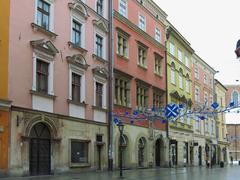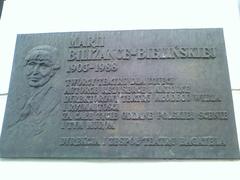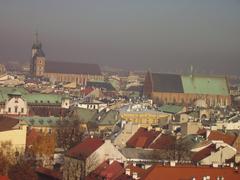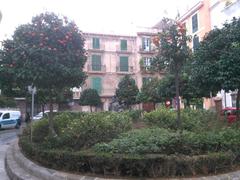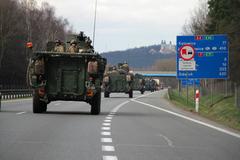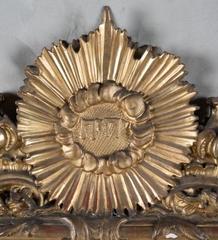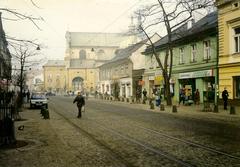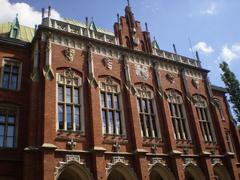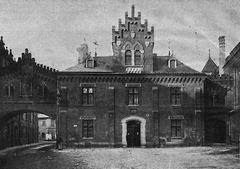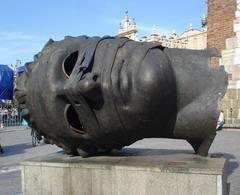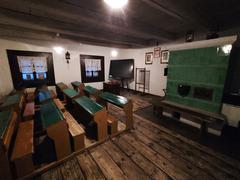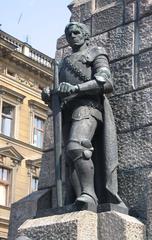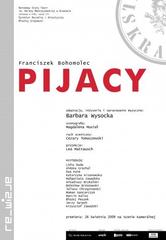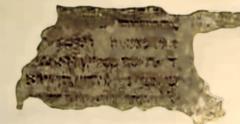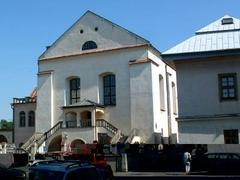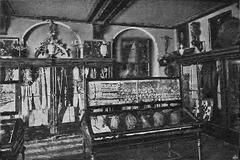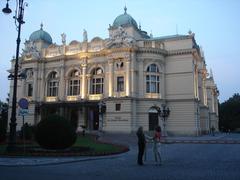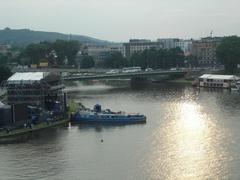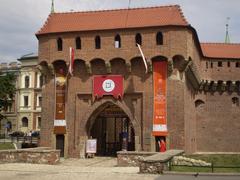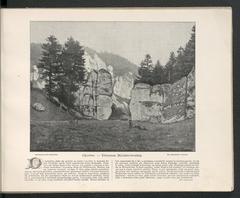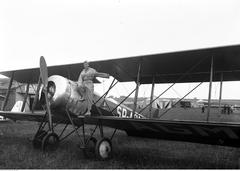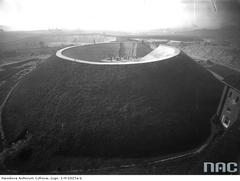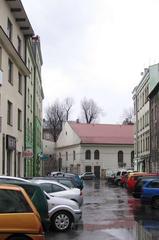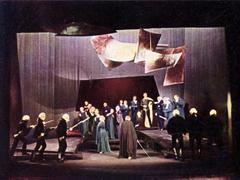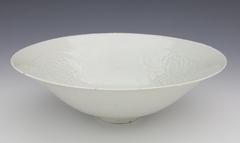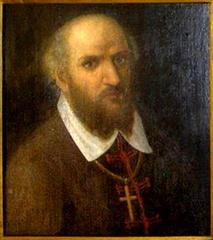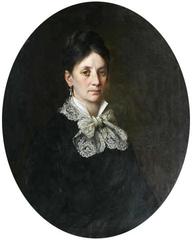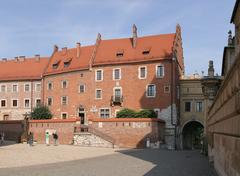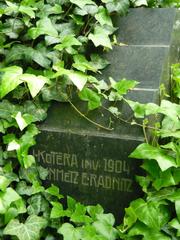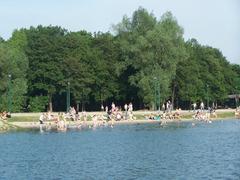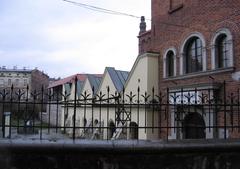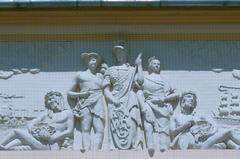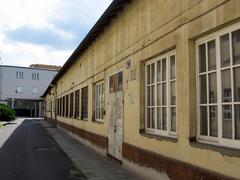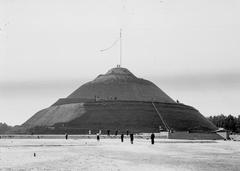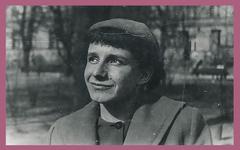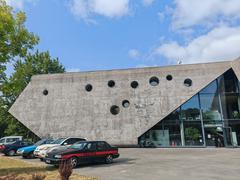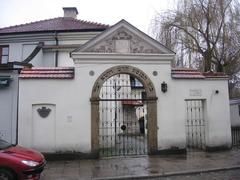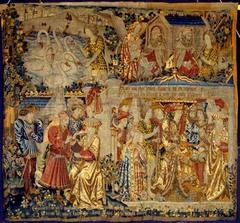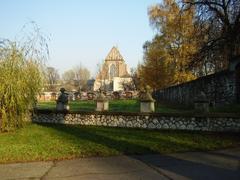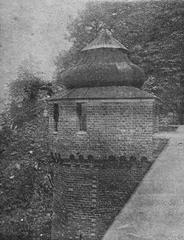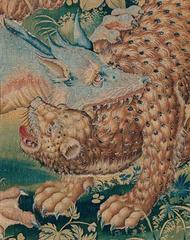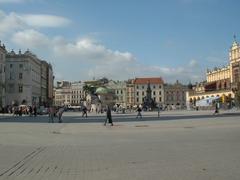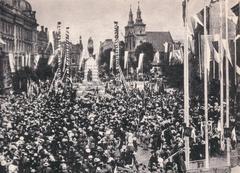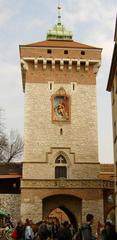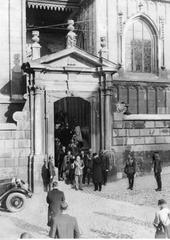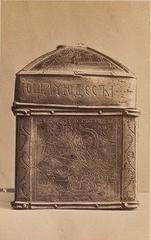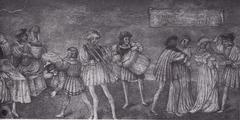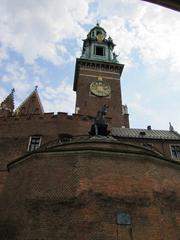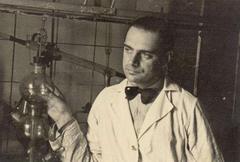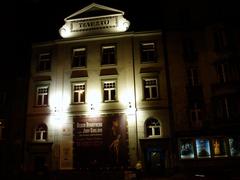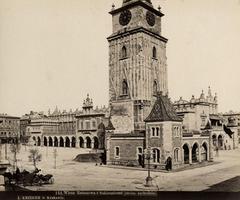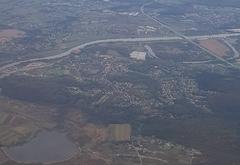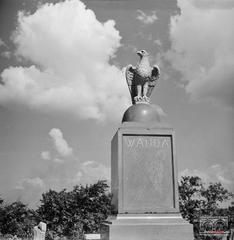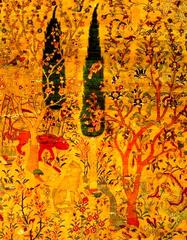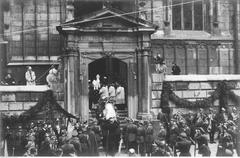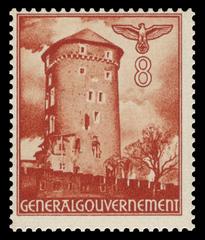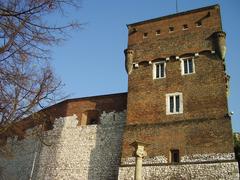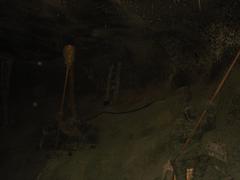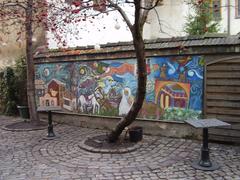Visiting Armia Krajowa Museum: Hours, Tickets, and Tips
Date: 16/08/2024
Introduction
The Armia Krajowa Museum in Kraków, Poland, serves as a crucial educational and commemorative institution dedicated to the memory of the Polish resistance during World War II. Opened in 2000, the museum is housed in a meticulously restored historic building that complements its extensive and evocative exhibits. The museum’s mission is to honor the Armia Krajowa (Home Army) and the Polish Underground State, which together formed one of the largest underground resistance movements in occupied Europe. It holds over 12,000 artifacts, including weapons, uniforms, documents, and personal items, offering visitors a tangible connection to Poland’s wartime history (source). Through its permanent and temporary exhibitions, educational programs, and research initiatives, the museum plays a key role in preserving the memory of the resistance fighters and educating the public about their significant contributions (source). Located conveniently near Kraków’s Main Railway Station, the museum is accessible to both locals and tourists, making it an essential stop for those looking to deepen their understanding of Poland’s wartime past (source).
Table of Contents
- Introduction
- Origins and Establishment
- Mission and Objectives
- Key Exhibitions and Collections
- Significance and Impact
- Visitor Information and Tips
- Nearby Attractions
- FAQ
- Conclusion
Origins and Establishment
The Armia Krajowa Museum was established to honor the memory of the resistance fighters who played a crucial role in the fight against Nazi Germany. Its origins can be traced back to the efforts of veterans and historians who sought to create a dedicated space for the preservation and dissemination of knowledge about the Armia Krajowa. Officially opened in 2000, the museum is housed in a meticulously restored historic building that provides a fitting environment for its extensive collections and exhibitions.
Mission and Objectives
The primary mission of the Armia Krajowa Museum is to educate the public about the history of the Armia Krajowa and the Polish Underground State. The museum aims to achieve this through a combination of permanent and temporary exhibitions, educational programs, and research initiatives. The museum’s objectives include:
- Preservation of Artifacts: Housing over 12,000 artifacts, including weapons, uniforms, documents, and personal items, the museum provides a tangible connection to the past.
- Educational Outreach: Offering a range of educational programs, including guided tours, workshops, and lectures, the museum engages visitors of all ages.
- Research and Scholarship: Conducting and supporting research on the history of the Armia Krajowa and the Polish Underground State, the museum disseminates findings through publications and conferences.
Key Exhibitions and Collections
The Armia Krajowa Museum features a variety of exhibitions that highlight different aspects of the resistance movement. Some of the key exhibitions and collections include:
- Permanent Exhibition: A comprehensive overview of the history of the Armia Krajowa and the Polish Underground State, organized chronologically and thematically with multimedia displays and interactive elements.
- Weapons Collection: Boasting the largest collection of small arms in Poland, including notable items like the Sten submachine gun and the Browning pistol.
- Personal Artifacts: Items such as uniforms, medals, and letters that provide a personal perspective on the experiences of resistance members.
- Temporary Exhibitions: Regularly hosted exhibitions exploring specific themes or events related to the Armia Krajowa, such as the Warsaw Uprising and the contributions of women in the resistance.
Significance and Impact
The museum plays a vital role in preserving the memory of the resistance movement and educating the public about this important chapter in Polish history.
- National Significance: Serving as a focal point for commemorating the sacrifices and achievements of the Armia Krajowa, fostering national pride and identity, and educating younger generations.
- International Recognition: Garnering international recognition through exhibitions and collaborations, such as the Warsaw Uprising exhibition showcased in Besalú, Catalonia.
Visitor Information and Tips
For those planning to visit the Armia Krajowa Museum, here are some practical tips and information to ensure a memorable experience:
- Location and Accessibility: Conveniently located in central Kraków, near the Main Railway Station and Małopolski Bus Station, accessible by car, tram, bus, or on foot.
- Opening Hours: Open from 10:00 AM to 5:00 PM, Tuesday through Sunday, closed on Mondays. Check the museum’s website for any changes or special events.
- Tickets and Discounts: Various ticket options available, including regular, discounted, family, and special tickets. Discounts for students, seniors, and veterans. Guided tours in Polish, English, and German can be booked in advance.
- Accessibility: Fully accessible to visitors with disabilities, with facilities like ramps, elevators, and accessible restrooms.
- Events and Activities: Hosting a variety of events and activities throughout the year, including workshops, lectures, and commemorative ceremonies. Check the event calendar for current happenings.
Nearby Attractions
While visiting the Armia Krajowa Museum, consider exploring other historical sites in Kraków, such as the Wawel Royal Castle, Schindler’s Factory, and the Main Market Square.
FAQ
- What are the Armia Krajowa Museum’s opening hours? The museum is open from 10:00 AM to 5:00 PM, Tuesday through Sunday.
- How to book tickets for the Armia Krajowa Museum? Tickets can be purchased online or at the museum. Guided tours can also be booked in advance.
- Is the museum accessible to visitors with disabilities? Yes, the museum is fully accessible with ramps, elevators, and accessible restrooms.
Conclusion
By visiting the Armia Krajowa Museum, tourists can gain a deeper understanding of the courage and resilience of the Polish resistance during World War II. The museum’s rich collections and engaging exhibitions provide a powerful and moving tribute to the men and women who fought for Poland’s freedom. Stay updated by checking the museum’s website and following on social media for the latest events and exhibitions.
References
- Military History Fandom. (n.d.). Armia Krajowa Museum in Kraków. Retrieved from https://military-history.fandom.com/wiki/Armia_Krajowa_Museum_in_Kraków
- Wikipedia. (n.d.). Armia Krajowa Museum in Kraków. Retrieved from https://en.wikipedia.org/wiki/Armia_Krajowa_Museum_in_Kraków
- Karnet Krakow Culture. (n.d.). Muzeum Armii Krajowej. Retrieved from https://karnet.krakowculture.pl/en/426-krakow-muzeum-armii-krajowej
- Krakow Top. (n.d.). Home Army Museum in Kraków. Retrieved from https://krakowtop.org/home-army-museum-in-krakow/
